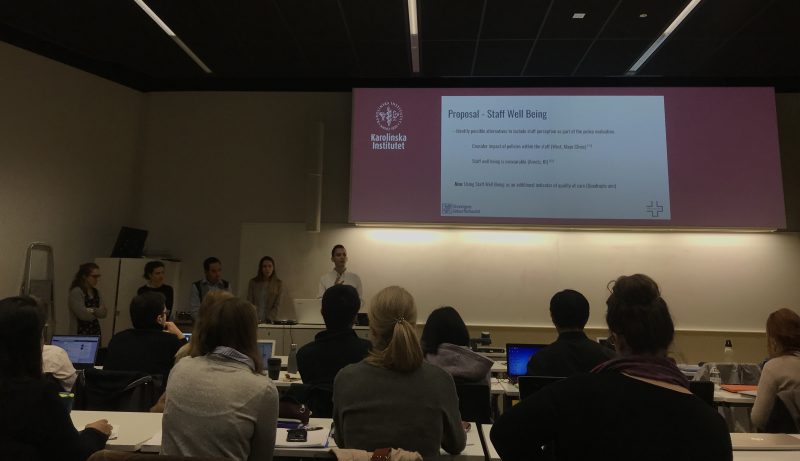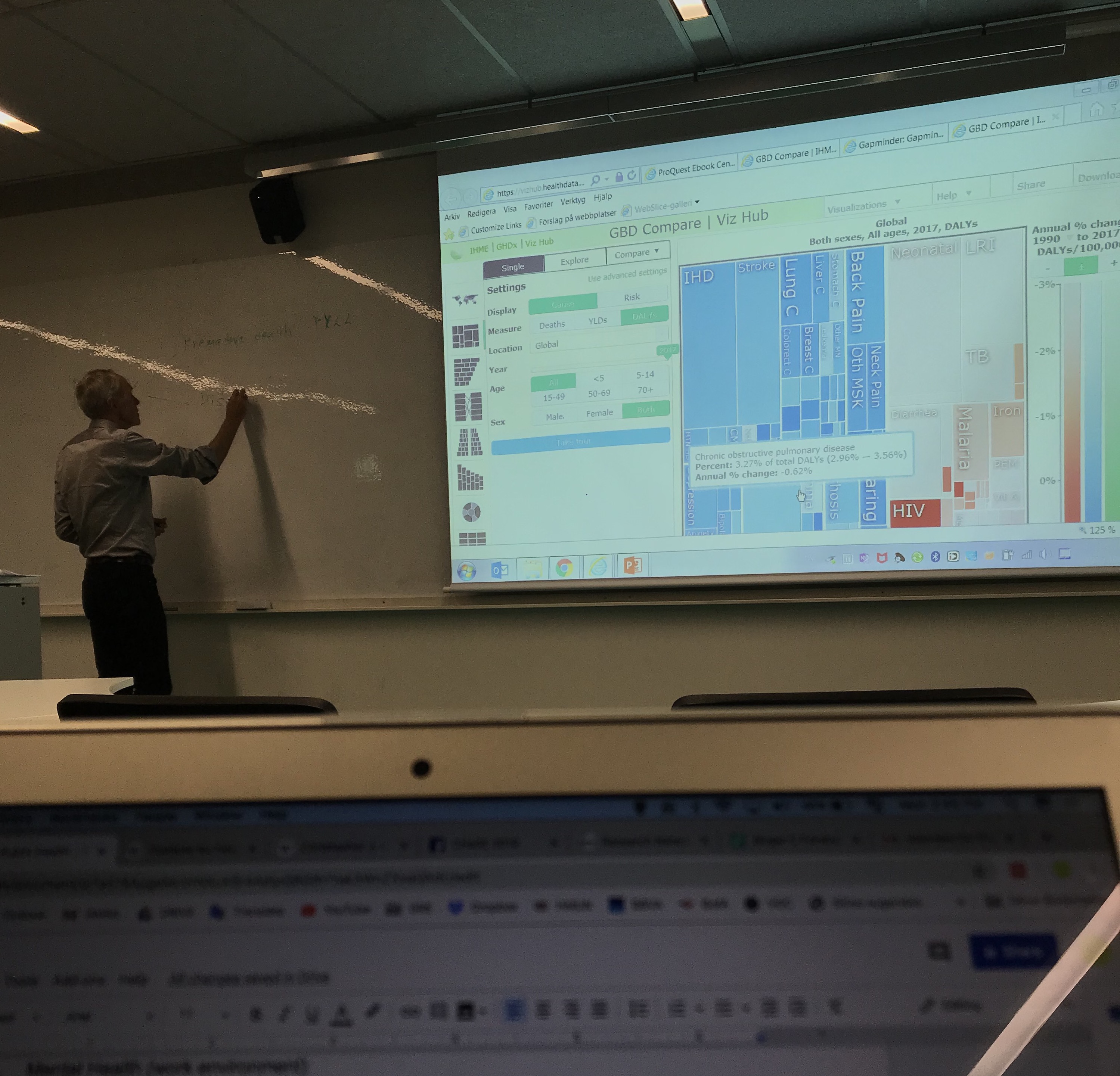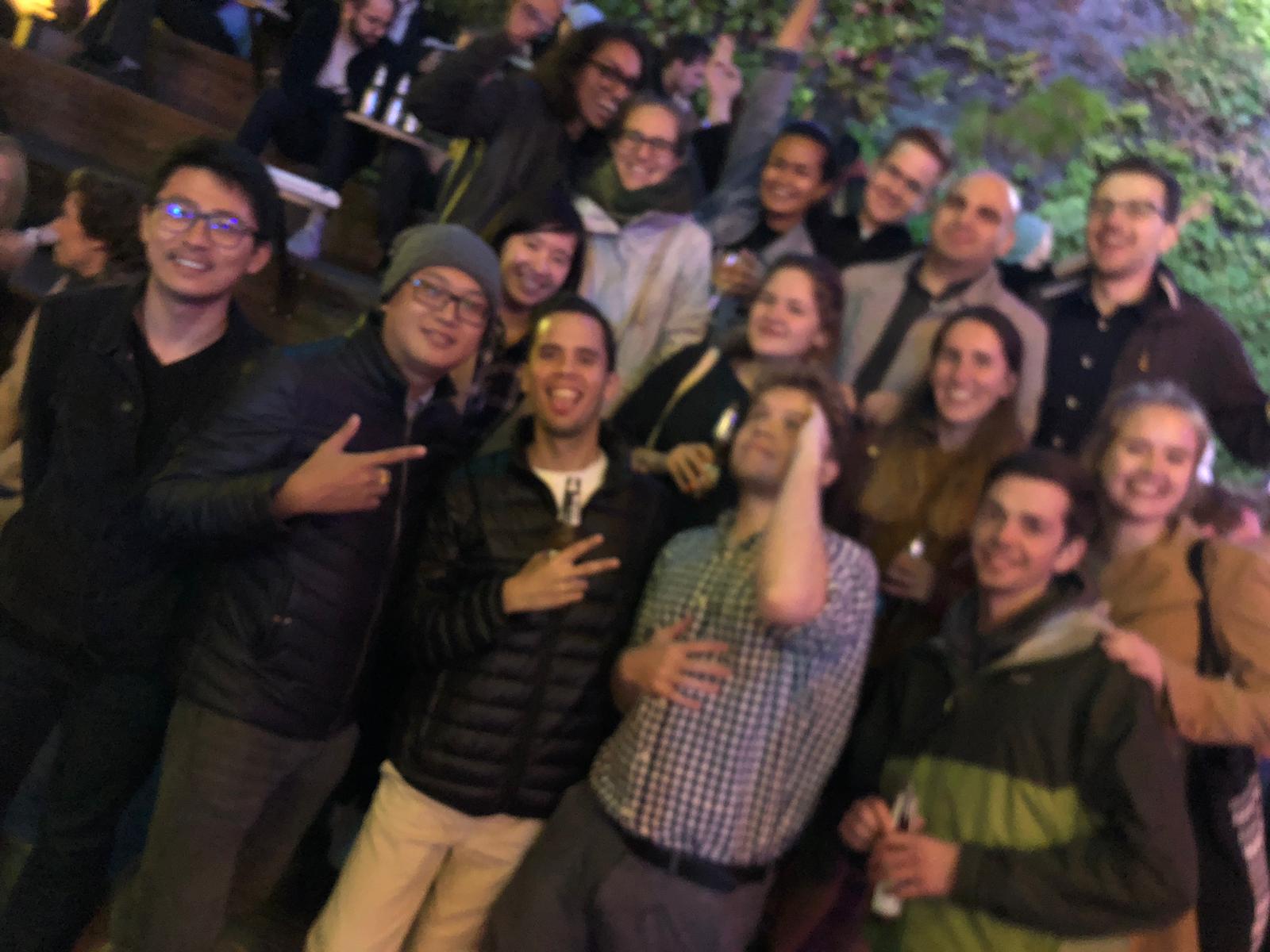
First course review of the Health Economics, Policy and Management programme
Hello, it’s me (Adele’s voice).
It is the time for the first course review of the Health Economics, Policy and Management Programme (HEPMP). On our first month of studies, our class was enrolled in the “Introduction Course”, which overall aimed to introduce us to the main concepts and principles of public health practice and management research related to the three main pillars of our program.
Course structure and lectures:
The two main components of the course were lectures and group work (tons of, no joke). We started the course by defining the main principles and concepts of public policy making, management strategies based on evidence and health economics design. We addressed several topics on the lectures relevant to public health policy, including:

(KI official website)
- Intro to basic concepts of HEPM;
- Bundle payment systems of financing healthcare;
- Introduction to public health concepts;
- Sexual health and human reproductive rights;
- Mental health: Epidemiology and interventions
- Our role in achieving the United Nations sustainable development goals and 2030 agenda;
- Philosophy of science;
- Ethics in medical and management research;
- Using sources in an effective manner and avoiding plagiarism, provided by experts from KI Library;
Our course director was Mats Brommels, MD PhD from Finland (you can check his impressive profile here). I must say he is not only a very reputable professional, but also a very caring and cherished professor.
Schedule:
The course had a duration of 5 weeks. We had lectures 3-4 days per week, while the remaining 1-2 days where dedicated to group work and self studies.
Evaluation:
Our course final evaluation consisted in one individual and one graded group assignment.
- Individual assignment: We were asked to identify specific challenges that our public health systems are facing and elaborate recommendations based on the basic principles of HEPM. This was a wholesome opportunity since we all got really passionate when coming up with solutions to our own problems at home. For example, I presented recommendations for fighting the massive resurgence of malaria and vaccine preventable diseases in Venezuela as a result of the abandonment of prevention policies.
- Group assignment: I would say with no hesitation that this was the most challenging part of the entire course. After revising the basic concepts of HEPM, we were handled a case of a promising bundle payment system method of financing hip and knee surgeries implemented a few years ago in Stockholm. The case report was developed between researches from KI (including our programme director) and the Institute for Strategy and Competitiveness at Harvard Business School. Our task consisted in analyse the case from the perspective of a particular stakeholder and present them in a “mock town hall meeting” during the evaluation day. We felt overwhelmed at the beginning because it became a very time consuming assignment that required a lot of team meetings and collaboration, nevertheless it ended up being a fun and enriching experience. We all received very positive feedback on our work from our course director.
Class insights:
I carried out a quick survey among peers in my class to pick up different insights and these were the results:
Two favorite lectures:
- Intro to Health Economics (83.5%)
- Sexual health and human reproductive rights (41.7%)
Why these two ones in particular?

“They were delivered by people who work in this field and could therefore guide us through the topics. We were walked through the economics assignments which made them less daunting. Also, being able to choose a sexual and reproductive rights&healthcare topic in any country was interesting because we could focus on the most interesting subject to us”
– Amy Barber (Political Economy) from the UK.
What did you learn from group assignments?
“Cultural awareness, how to handle administrative load with lots of assignments and different teams” – Efthymios Skoufas (Pharmacy) from Greece.
“I have learned different systems, thinking, perceptions and yes, cultures” – Kyaw Htun Naing, MD from Myanmar.
“It was a good way to meet members in the class which I think is important. I learned about healthcare in Sweden and some of the politics surrounding it” – Jack Latteur (Economics) from the UK.
What did you like about the course? Our Class? About KI?

“Diversity” – Shruti Sharma (Dental Medicine) from India.
“About class: Very different backgrounds, openness, collaboration. About KI: Quality of the lecturers/ value of the invited speakers at conferences” – Maria Del Pilar Vidaurre (Biomedicine) from Spain.
“I like the intensive way of learning when we just focus on one topic at a time, not having multiple courses running at the same time” – Iida Tynkkynen (Public Health) from Finland.
Hope you find this information very useful for creating a first impression regarding the masters programme in HEPM. Don’t forget to subscribe and like the post!
Stay tuned!
From the foggy north with appreciation,
Julio.
email: julio.sosa@stud.ki.se
Linkedin: https:/www.linkedin.com/in/julio-sosa-maldonado-659301175/
Instagram: @julio.sosam

0 comments